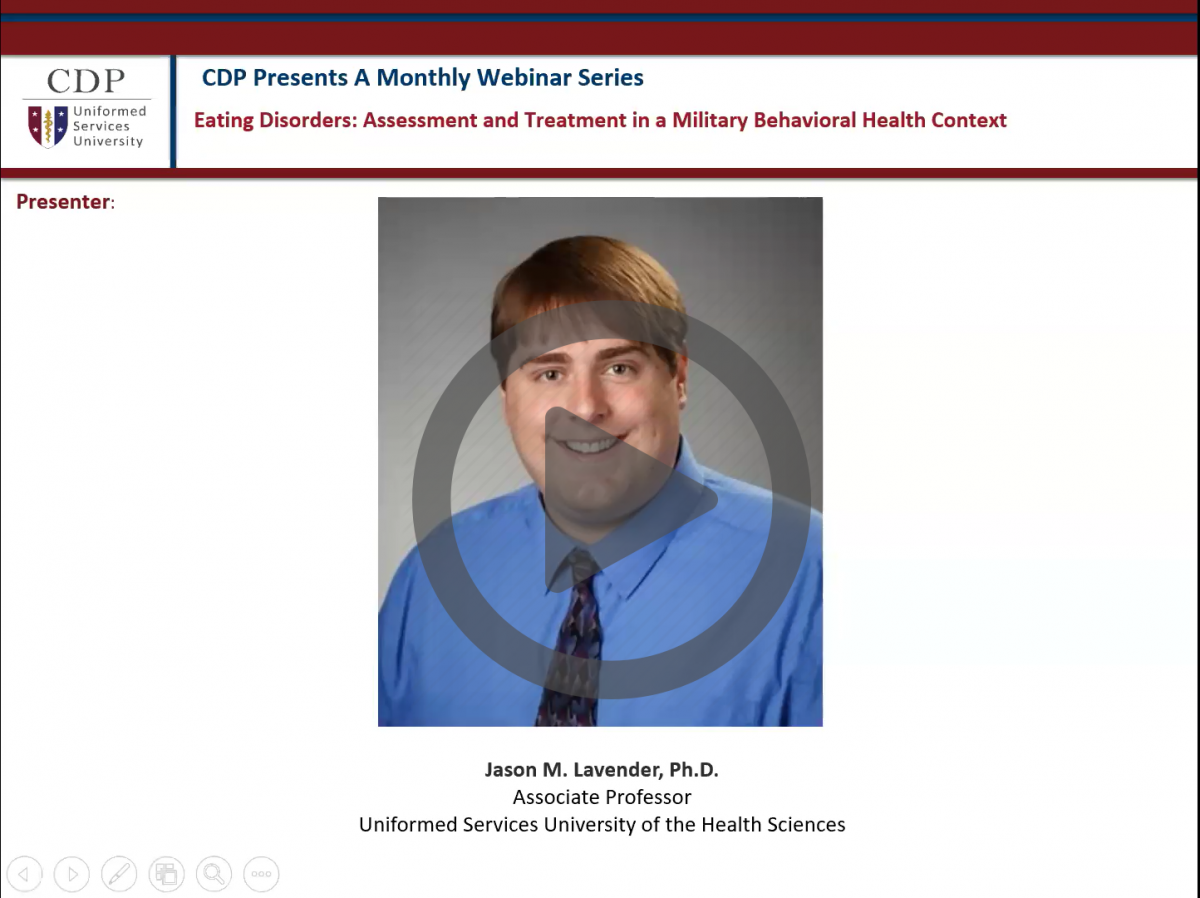Eating Disorders are serious and complex mental health disorders that are estimated to affect nearly 30 million U.S. citizens over the course of their life, including service members. In fact, the incidence of Eating Disorders in service members is rising, with female service members at particularly elevated risk. Based on reports from the Defense Medical Surveillance System between 2017 and 2021, annual incidence rates of Eating Disorders rose from 1.1% to 2.2% in male service members and from 11.4% to 18.7% in female service members. However, these prevalence rates may be underestimated given that service members are not actively screened for Eating Disorders after entering service, and many may under report symptoms to avoid stigma and/or potential negative impact to career. In addition, military life and stressors can contribute to disordered eating patterns to conform to body composition standards and perceived expectations for the ideal physical appearance of a service member.
Behavioral health providers play a critical role in identifying, treating, and referring those experiencing symptoms related to Eating Disorders. They possess the expertise to utilize diagnostic screening and symptom measures, as well as the ability to engage in evidence-based treatments while monitoring need for referral to a different level of care.
This webinar provides evidence-based guidance for behavioral health providers to enhance their knowledge in assessment and first- and second-line interventions for Eating Disorders. It also addresses information on how to navigate a service member’s needs and unique considerations given their military context.
For more information on this event, check out the Bottom Line, Up Front (B.L.U.F.) video below!
Learning Objectives:
Attendees will be able to:
- Integrate appropriate assessments and select evidence-based treatments for eating disorders in clinical practice when working with military populations.
- Understand the multidisciplinary nature of and different levels of care for eating disorders to inform when referrals may be warranted.

